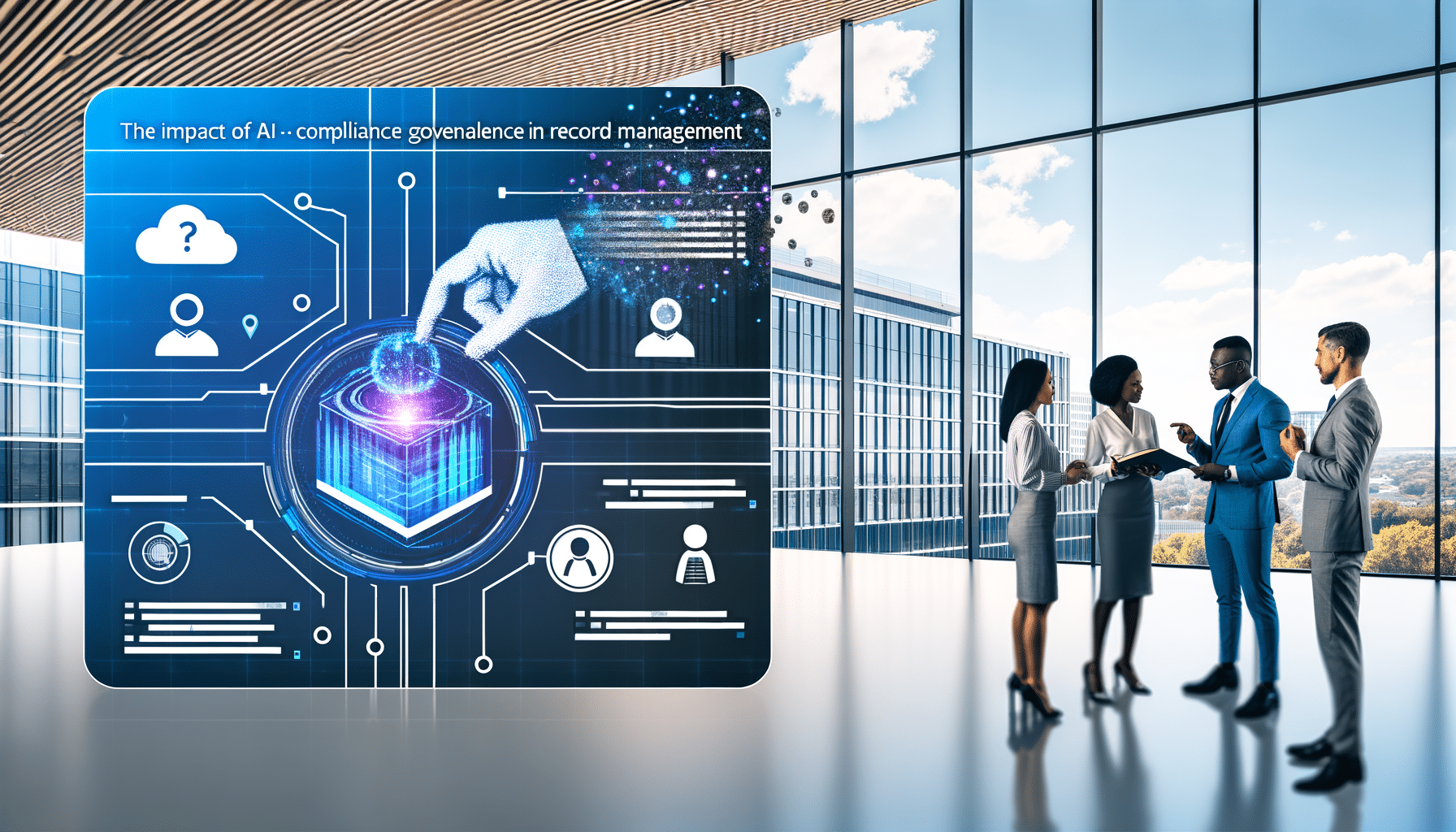- Data Governance
- November 16, 2024
Simplify Data Governance Using RecordsKeeper.AI

Revolutionizing Data Governance: My Journey with RecordsKeeper.AI
When I embarked on the journey to create RecordsKeeper.AI, I knew that there was a burning need to simplify data governance. Businesses and organizations today are swamped by the sheer volume of data that flows through their systems. Managing this data isn’t just about storing it away safely; it’s about ensuring it’s organized, compliant, and easily retrievable. The question was, how could we make governance simplification possible while maintaining the highest standards of security and efficiency?
That’s where RecordsKeeper.AI comes into play, a platform born out of a desire to transform data governance from a headache into a strategic asset.
The Challenges of Traditional Data Governance
In my early discussions with industry peers, legal and compliance heads voiced a common concern: managing records manually is time-consuming, costly, and fraught with risks of non-compliance. With regulations like GDPR and HIPAA, the stakes have never been higher.
Governance processes often involve a labyrinth of spreadsheets, piles of paperwork, and countless hours of manually tracking and verifying data compliance. It was clear to me that a more agile and automated solution was required, one harnessing the power of AI to streamline these cumbersome processes.
Harnessing AI for Simplification
Imagine entering a room with piles of unsorted documents and, within seconds, having them organized, tagged, and filed away to their respective folders automatically. That’s precisely the magic of AI in data governance. At RecordsKeeper.AI, we’ve capitalized on AI’s capability to perform automated categorization and retrieval. Our tools allow users to locate records swiftly using natural language queries, taking the guesswork out of data management.
For governance simplification, our platform doesn’t stop at categorization. It’s about understanding relationships, deriving insights, and guaranteeing compliance. Through AI, we automate regulatory workflows, ensuring documents meet the latest industry standards without the need for constant manual audits.
Ensuring Robust Security
It’s not just about simplicity—it’s about security. Integrating blockchain technology guarantees the integrity of your data. Every record processed through RecordsKeeper.AI becomes part of an immutable, tamper-proof ledger. This means each data point is locked against alteration, assuring that compliance and audit logs can be trusted implicitly.
Our secure data rooms enable the sharing of sensitive files with controlled access, complemented by real-time activity tracking to safeguard against unauthorized access. For compliance heads, this has been a game changer—offering unparalleled peace of mind in managing sensitive records.
Automation: Your Strategic Advantage
Incorporating features such as backup and recovery, and policy management allows organizations to convert mandatory data governance tasks into strategic advantages. Regular automated backups and rapid recovery options mean that data is never lost. Policies for data retention and deletion are enforced seamlessly, minimizing compliance risks and potential liabilities.
Furthermore, by maintaining detailed activity logs, RecordsKeeper.AI prepares businesses for audit readiness, providing comprehensive reports at a moment’s notice.
Redefining the Focus on What Matters
By introducing these AI-driven solutions, RecordsKeeper.AI transforms data governance from a time-consuming tick-box exercise into a meticulously organized strategic resource. It’s no longer about fighting through data chaos; it’s about leveraging that data for strategic intent—whether optimizing operations, reducing costs, or enhancing decision-making.
My vision with RecordsKeeper.AI has always been to enable leaders to focus on growth, innovation, and the core mission of their organizations, leaving the complex yet critical task of data governance in the reliable hands of cutting-edge AI technology.
Looking Ahead
As I reflect on this journey, the mission remains clear. To inspire confidence in data governance and provide the tools needed to navigate today’s complex digital landscape. I invite fellow leaders and governance experts to explore what RecordsKeeper.AI can do for your data management strategies. The future of data management is not about keeping up; it’s about moving ahead with RecordsKeeper.AI.
For more insights and shared experiences in tech innovation or data management, feel free to follow my journey. Join me, as together, we unlock new potentials in data governance through innovation and technology.
Toshendra Sharma is the visionary founder and CEO of RecordsKeeper.AI, spearheading the fusion of AI and blockchain to redefine enterprise record management. With a groundbreaking approach to solving complex business challenges, Toshendra combines deep expertise in blockchain and artificial intelligence with an acute understanding of enterprise compliance and security needs.
Related Posts

The Impact of AI on Compliance and Governance in Record Management
Learn how AI improves compliance and governance frameworks within record-keeping practices.
- April 22, 2023

Leveraging Blockchain for Transparent Corporate Governance
Discover how blockchain supports transparent governance in corporations.
- February 4, 2023
Archives
- December 2024
- November 2024
- October 2024
- September 2024
- August 2024
- July 2024
- June 2024
- May 2024
- April 2024
- March 2024
- February 2024
- January 2024
- December 2023
- November 2023
- October 2023
- September 2023
- August 2023
- July 2023
- June 2023
- May 2023
- April 2023
- March 2023
- February 2023
- January 2023
- December 2022
- November 2022
- October 2022
- September 2022
- March 2019
Want to get more content like this?
Signup to directly get this type of content to your inbox!!
Latest Post
Organizing External Auditor Access
- December 22, 2024
Document Control in Manufacturing Plants
- December 21, 2024
Handling Rush Financial Report Requests
- December 20, 2024
Managing Record Access After Staff Changes
- December 19, 2024





